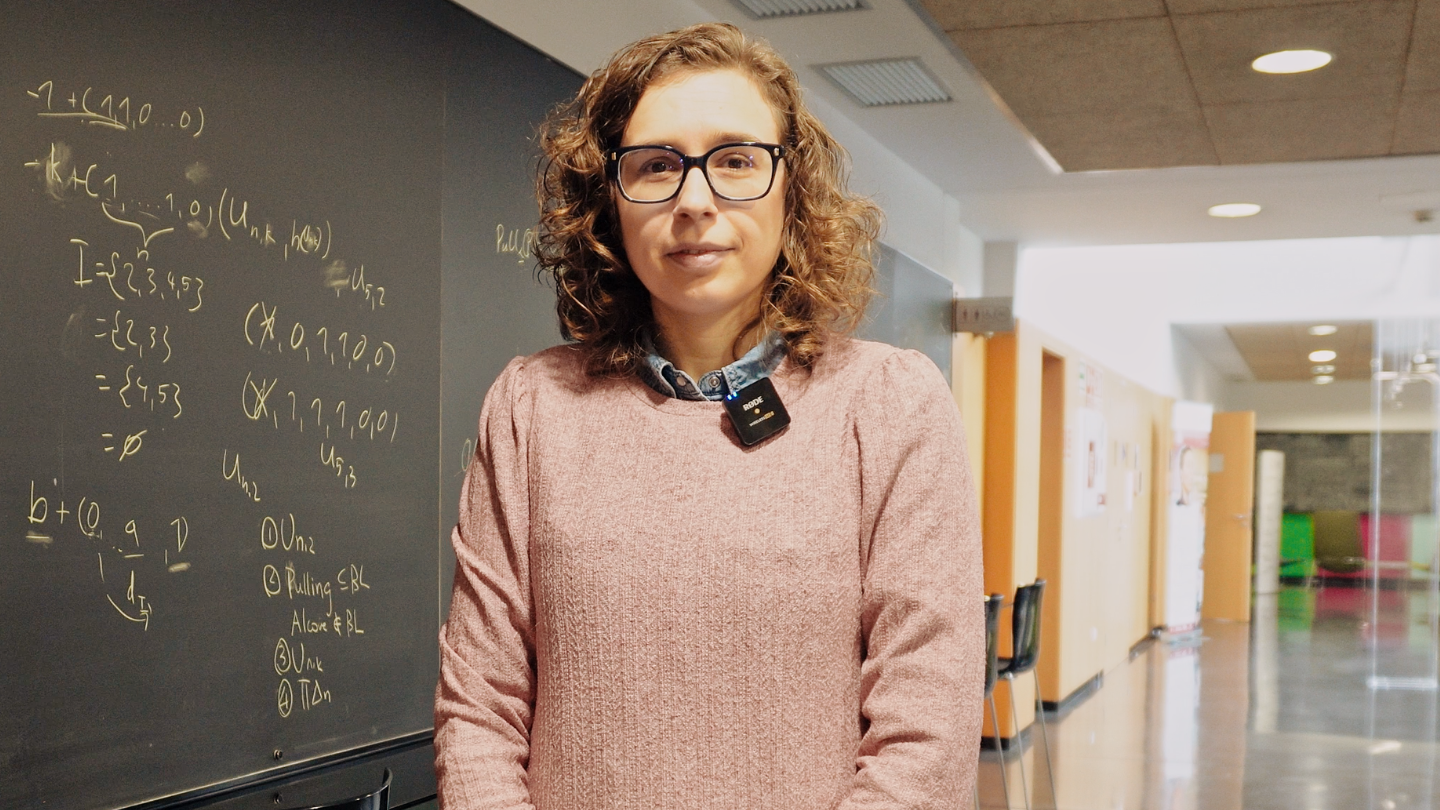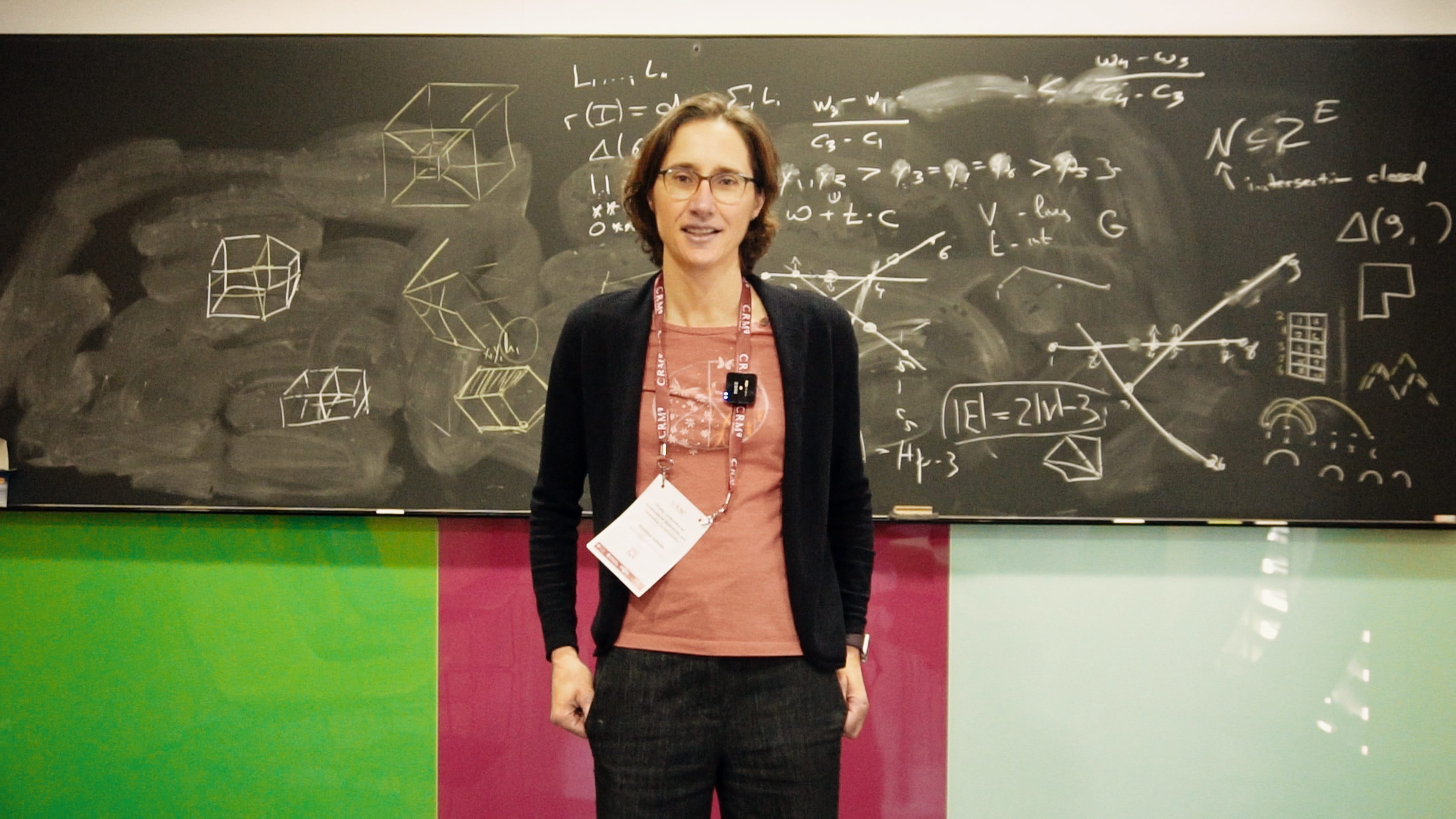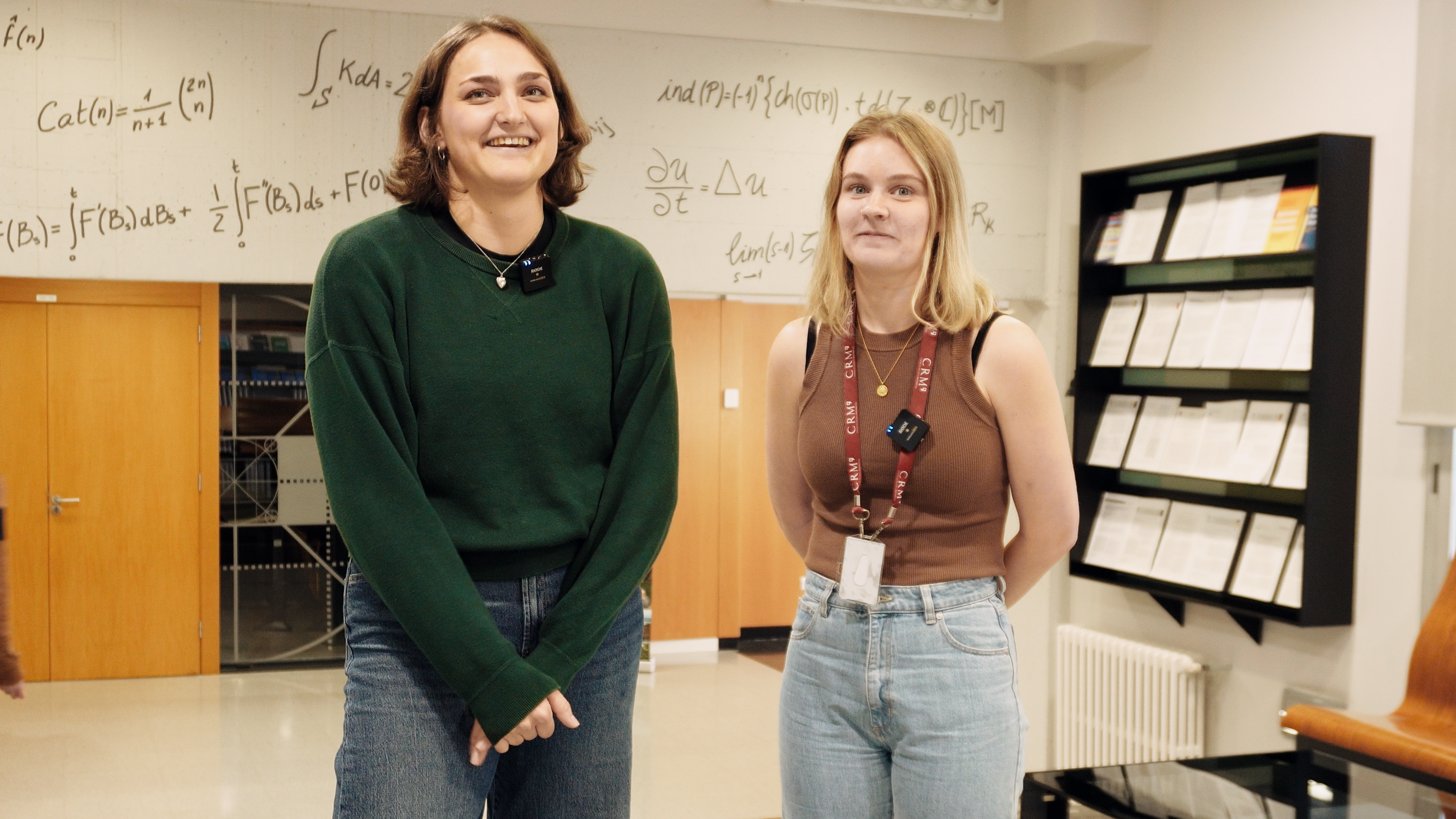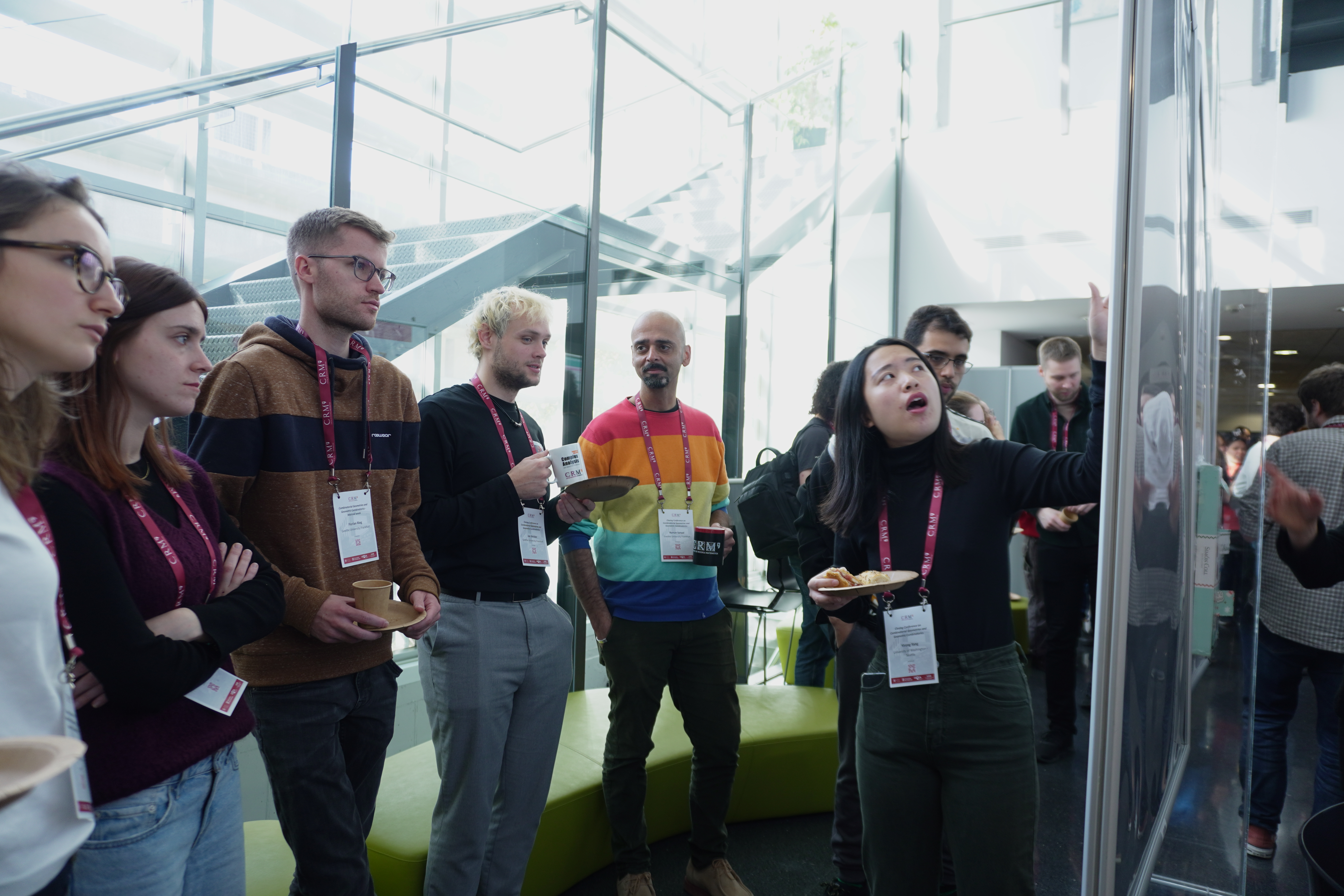During the last Pi Day, the CRM served up a mathematical challenge addressed at students from the UAB Faculty of Science and Biosciences.

Every March 14th (3/14 in the month/day format) mathematicians and math enthusiasts all over the world celebrate Pi Day, named after the constant (known by the Greek letter “π”) that represents the ratio of a circle’s circumference to its diameter and its fascinating history. The date, which also commemorates Albert Einstein’s birth date and was the day Stephan Hawking died, was designated in 2019 by UNESCO as the International Day of Mathematics.
The day was first celebrated in 1988 at San Francisco’s Exploratorium, started by physicist Larry Shaw. Traditions for Pi Day include eating pie (pun very much intended due to the fact that “pi” and “pie” are homophones in English /paɪ/) and reciting from memory the decimals of the number π (if you want a crack at the record, the current Guinness World Record is held by Rajveer Meena of India, who, in 2015, recited 70.000 digits of Pi). This year the CRM joined the celebration with a mathematical challenge aimed at the student community here at the UAB Science and Biosciences Faculty, launched on the same day via the CRM’s social networks, with prizes for the first three people to bring us the correct solutions.
You go on a beach holiday, but you get bored and your mathematician friend helps you with a problem. She/He gives you two empty buckets, one with a capacity of 3/4 L of water and the other with a capacity of π / 4 L of water. He then asks you how you would end up with a bucket containing 1/4 L of water with an error of less than 1%? How many water transfers do you need to get what she/he has asked for?
Three students (two form mathematics and one from biology) got the solution right and claimed their reward.

In praise of Pi
Pi is an irrational number, which means that it cannot be represented as a fraction, and its digits go on forever with no recurring patterns. This means that Pi is infinite, and its exact value can never be calculated (an approximation such as 3.14 or 22/7 is often used for everyday calculations). Currently, about 62.8 million digits of Pi have been discovered, with a group of researchers from the University of Applied Sciences of the Grisons in Switzerland holding the record.
The Pi number has been known for almost 4.000 years, since the times of ancient civilizations such as the Egyptians and Babylonians. The first calculation of π was done by Archimedes of Syracuse (287–212 BC), one of the greatest mathematicians of the ancient world. Over the ensuing centuries, Chinese, Indian, and Arab mathematicians extended the number of decimal places known through tedious calculations, rather than improvements on Archimedes’ method. It was not until 1706, however, that the Greek π letter was used to identify the number, with Philologist William Jones first using the symbol. Later on, it was Leonhard Euler who popularized the use of the symbol among the scientific community in 1737.
Famous mathematicians such as Fibonacci, Newton, Leibniz, and Gauss, have worked on the number, calculating its digits and using it in numerous areas of mathematics.

CRM Comm Team
Anna Drou | Paula Lomascolo | Pau Varela
CRMComm@crm.cat
Seeing Through Walls: María Ángeles García Ferrero at CRM
From October to November 2025, María Ángeles García Ferrero held the CRM Chair of Excellence, collaborating with Joaquim Ortega-Cerdà on concentration inequalities and teaching a BGSMath course on the topic. Her main research focuses on the Calderón problem,...
Fuel Cells, Filtration, and Decades of Collaboration: A Conversation with Brian Wetton
Brian Wetton, from the University of British Columbia, spent last October at CRM collaborating with Tim Myers on computational models for filtration systems. His career has evolved from pure numerical analysis to applied mathematics with industrial partners, working...
From Barcelona to West Bengal: Chemistry Meets Mathematics to Enhance Water Filter Design
Researchers at the Centre de Recerca Matemàtica, in collaboration with IIT Kharagpur and UPC, have developed a mathematical model that accurately predicts the performance of fluoride-removal water filters made of mineral-rich carbon (MRC) and...
Polytopes, Matroids, and the Friends You Make: Martina Juhnke on Two Months at the CRM
The Centre de Recerca Matemàtica recently hosted a research programme on Combinatorial Geometries and Geometric Combinatorics, focusing on the overlap between polytopes and matroids. Martina Juhnke, a member of the scientific committee, reflects on how this programme...
BAMB! 2025: Participants Return to the CRM for Research Stays
In October 2025, the Centre de Recerca Matemàtica hosted Josefine Meyer (ISTA) and Cate MacColl (University of Queensland) for a month-long research stay following their participation in the BAMB! Summer School. Despite studying vastly different subjects, from...
Connecting Shapes, Patterns, and Ideas: the Closing Conference on Combinatorial Geometries and Geometric Combinatorics
During five days, the CRM hosted the Closing Conference of the MDM Focused Research Programme on Combinatorial Geometries & Geometric Combinatorics. The event featured plenary talks, contributed sessions, and posters on topics from matroids and polytopes to...






